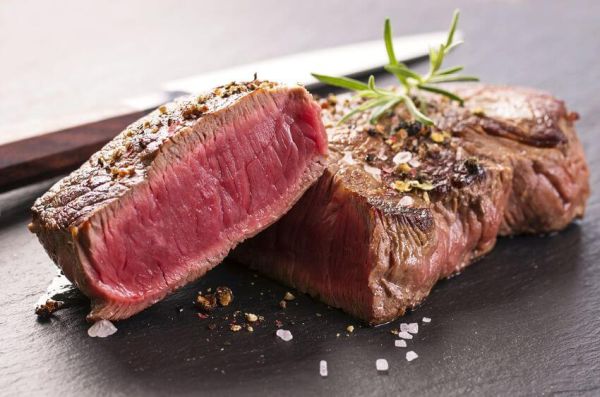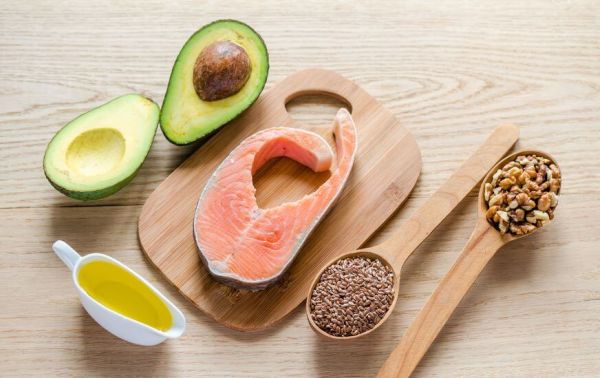That’s why millions of guy take dangerous steroids, and millions more buy products that claim to be able to boost testosterone naturally (but do very little, in reality).
So, are there healthy, scientifically proven ways to increase your testosterone production without taking drugs or wasting ungodly amounts of money on fancy supplements? Absolutely.
There are six easy, healthy ways, actually. If you incorporate all into your daily routine, you can notice quite a difference.
Table of Contents
+
#1
Eat the Right Vegetables

Research has shown that vegetables rich in a substance known as indole-3-carbinol, or “I3C,” can positively alter estrogen metabolism in men (in this study, 500 mg of I3C per day reduced “bad” estrogens by 50%). This, in turn, helps maintain optimal levels of testosterone.
I3C occurs naturally in cruciferous vegetables such as bok choy, broccoli, brussels sprouts, cabbage, cauliflower, kale, kohlrabi, mustard, rutabaga, and turnip.
If you can work 1–2 servings of these types of veggies into your daily meal plan, it can help your hormones.
#2
Eat More Meat

Protein from meat is particularly helpful when you’re weightlifting. Studies clearly show that meats increase testosterone levels and lead to increased levels of muscle mass.
One study had two groups of men, all comparable in health and build, follow a weightlifting program for twelve weeks. By the end of the program, all had progressed about equally in strength, but only the meat eaters enjoyed significant muscle growth and fat loss.
“Meat” doesn’t only mean red meat, by the way. Fish, chicken, turkey, pork, buffalo, and so on all qualify as “meat” in this sense.
I eat two servings of meat every day (lunch and dinner), and when I’m bulking, I eat at least four servings of red meat each week (95% lean, or lean cuts of meat like filet or NY strip). When I’m cutting, I do one to two servings of red meat per week.
#3
Eat Enough Healthy Fats

Fats are the densest energy sources available to your body. Each gram of fat contains over twice the calories of a gram of carbohydrate or protein.
Healthy fats, such as those found in meat, dairy, olive oil, avocados, flax seed oil, many nuts, and other foods, are actually an important component to overall health. Fats help your body absorb the other nutrients that you give it, nourish the nervous system, help maintain cell structures, regulate hormone levels, and more. Research has shown that men whose diets are rich in healthy fats have significantly higher testosterone levels than those whose diets are lacking in this regard.
It’s commonly believed that eating saturated fat, like the fats mainly in animal products such as meat, dairy products, and egg yolks., harms your health. Research is proving this claim to be untrue, however. In fact, recent research indicates the opposite may be true–that saturated fat may actually reduce your risk of heart disease.
The type of fat you want to avoid at all costs, however, is trans fat.
Trans fat is a scientifically modified form of saturated fat that has been engineered to give foods longer shelf lives. Many cheap, packaged foods are full of trans fat (such as run-of-the-mill popcorn, yogurt, and peanut butter), as are many frozen foods (such as frozen pizza, packaged pastries, cakes, etc.). Fried foods are often cooked in trans fat.
This type of fat is bad news, and eating too much of it has been associated with various kinds of disease and complications. It has no nutritional value for the body and thus should be avoided altogether.
#4
Chill Out, Man

This tip is pretty simple: reduce the stress in your life, and your testosterone levels will rise.
[tweet “Reduce the stress in your life and your testosterone levels will rise.”]
Your body reacts to stress by producing a hormone called “cortisol,” which is highly catabolic (leads to the breakdown of muscle and fat tissue), and which can interfere with testosterone production. Cortisol also increases the appetite and may promote the accumulation of belly fat, which can become a vicious cycle if daily stress levels are high.
So, try not to sweat the little annoyances so much, avoid overtraining, take some time for yourself every day to chill out, and avoid conflicts by trying to treat others the way you’d like to be treated, and you’ll not only be happier in life, but you’ll make better gains in the gym (which leads to even more happiness–cool!).
#5
Get Enough Sleep

Many people work long hours and cut down on their sleep to make extra time for themselves at night. While I totally understand this and have done it many times myself, it’s not a good habit to get into.
Research has shown that not sleeping enough reduces testosterone levels. In that study, young healthy men were restricted to 5 hours of sleep per night, and it decreased their daytime testosterone levels by 10% to 15%.
Studies have also shown that sleep restriction makes losing weight harder, and causes you to lose more muscle while in a caloric restriction.
So shoot for 7–9 hours of sleep per night (and that means asleep for that many hours—not getting into bed at midnight and waking up at seven).
Oh and don’t worry about the whole “before or after midnight” thing. There is no scientific evidence that sleep hours after midnight are less beneficial than those before midnight, or that you should get to bed before midnight for proper sleep.
#6
Have More Sex

As one would expect, having sex increases testosterone levels, so now you can tell your girl that it’s her duty to help preserve your health by putting out (hah).
Summary
These are six of the easiest, healthiest ways that you can increase your testosterone levels, and I recommend that you incorporate them all into your lifestyle. I did that a few years ago and have kept them in, and the differences in how I look and feel are night and day.
Do you already have some experience with any of these? Want to say anything else? Let me know in the comments below!
Scientific References +
- Dabbs JM, Mohammed S. Male and female salivary testosterone concentrations before and after sexual activity. Physiol Behav. 1992;52(1):195-197. doi:10.1016/0031-9384(92)90453-9
- Nedeltcheva A V., Kilkus JM, Imperial J, Schoeller DA, Penev PD. Insufficient sleep undermines dietary efforts to reduce adiposity. Ann Intern Med. 2010;153(7):435-441. doi:10.7326/0003-4819-153-7-201010050-00006
- Leproult R, Van Cauter E. Effect of 1 week of sleep restriction on testosterone levels in young healthy men. JAMA - J Am Med Assoc. 2011;305(21):2173-2174. doi:10.1001/jama.2011.710
- Moyer AE, Rodin J, Grilo CM, Cummings N, Larson LM, Rebuffé‐Scrive M. Stress‐Induced Cortisol Response and Fat Distribution in Women. Obes Res. 1994;2(3):255-262. doi:10.1002/j.1550-8528.1994.tb00055.x
- Epel E, Lapidus R, McEwen B, Brownell K. Stress may add bite to appetite in women: A laboratory study of stress-induced cortisol and eating behavior. Psychoneuroendocrinology. 2001;26(1):37-49. doi:10.1016/S0306-4530(00)00035-4
- JSSM- 2005, Vol.4, Issue 1, 76 - 83. https://www.jssm.org/vol4/n1/10/v4n1-10text.php. Accessed December 23, 2019.
- Wolfe RR. Control of muscle protein breakdown: Effects of activity and nutritional states. In: International Journal of Sport Nutrition. Vol 11. ; 2001. doi:10.1123/ijsnem.11.s1.s164
- Mozaffarian D, Pischon T, Hankinson SE, et al. Dietary intake of trans fatty acids and systemic inflammation in women. Am J Clin Nutr. 2004;79(4):606-612. doi:10.1093/ajcn/79.4.606
- Salmerón J, Hu FB, Manson JE, et al. Dietary fat intake and risk of type 2 diabetes in women. Am J Clin Nutr. 2001;73(6):1019-1026. doi:10.1093/ajcn/73.6.1019
- Knopp RH, Retzlaff BM. Saturated fat prevents coronary artery disease? An American paradox. Am J Clin Nutr. 2004;80(5):1102-1103. doi:10.1093/ajcn/80.5.1102
- Siri-Tarino PW, Sun Q, Hu FB, Krauss RM. Meta-analysis of prospective cohort studies evaluating the association of saturated fat with cardiovascular disease. Am J Clin Nutr. 2010;91(3):535-546. doi:10.3945/ajcn.2009.27725
- Volek JS, Kraemer WJ, Bush JA, Incledon T, Boetes M. Testosterone and cortisol in relationship to dietary nutrients and resistance exercise. J Appl Physiol. 1997;82(1):49-54. doi:10.1152/jappl.1997.82.1.49
- Campbell WW, Barton ML, Cyr-Campbell D, et al. Effects of an omnivorous diet compared with a lactoovovegetarian diet on resistance-training-induced changes in body composition and skeletal muscle in older men. Am J Clin Nutr. 1999;70(6):1032-1039. doi:10.1093/ajcn/70.6.1032
- Aubertin-Leheudre M, Adlercreutz H. Relationship between animal protein intake and muscle mass index in healthy women. Br J Nutr. 2009;102(12):1803-1810. doi:10.1017/S0007114509991310
- Raben A, Kiens B, Richter EA, et al. Serum sex hormones and endurance performance after a lacto-ovo vegetarian and a mixed diet. Med Sci Sports Exerc. 1992;24(11):1290-1297. http://www.ncbi.nlm.nih.gov/pubmed/1435181. Accessed December 23, 2019.
- Michnovicz JJ, Bradlow HL. Altered Estrogen Metabolism and Excretion in Humans Following Consumption of Indole-3-Carbinol. Nutr Cancer. 1991;16(1):59-66. doi:10.1080/01635589109514141










